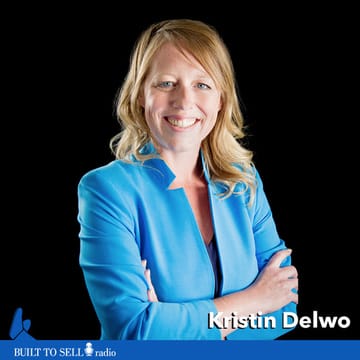About this episode
Kristin Delwo co-founded Stacks, a software used by librarians. Though the software was still early in its life, Delwo wanted to scale quickly and decided to look for a deep-pocketed acquirer.
To read a transcript of this episode, click here.
Delwo was too early in her lifecycle to attract an all cash offer so agreed to sell her business putting much of her consideration “at risk” in an earn out.
In this episode, you’ll learn:
- The biggest mistake to avoid when structuring your earn out contract
- How to value a company when you’re buying out an existing partner
- The best way to get buy-in from employees when moving from a consulting to a product-based company
- The one strategic reason Delwo chose to partner with EBSCO instead of building her own salesforce
- The one fundamental decision Delwo made to set herself up for success in the sale
Kristin Delwo approached her business exit with a flexibility. She was willing to accept different options because she knew it would help her company scale. Having Structuring Flexibility is a key driver of ensuring a personally satisfying exit. Find out how personally ready you would be if you exited your business tomorrow. Take your free, 5-minute PREScore™ questionnaire now.
Check out our article on 4 Things To Consider Before Agreeing To An Earn-Out Deal.

About Our Guest
Kristin Delwo is Founder, President & CEO of Stacks Inc., a SaaS startup in the information management space with global distribution in several markets including corporations, healthcare, academic institutions, and libraries. Delwo also owns and operates a successful professional services firm founded in 2006. Delwo is a trusted authority on business growth and entrepreneurship and is driven by the desire to find new and better ways to conduct business.


